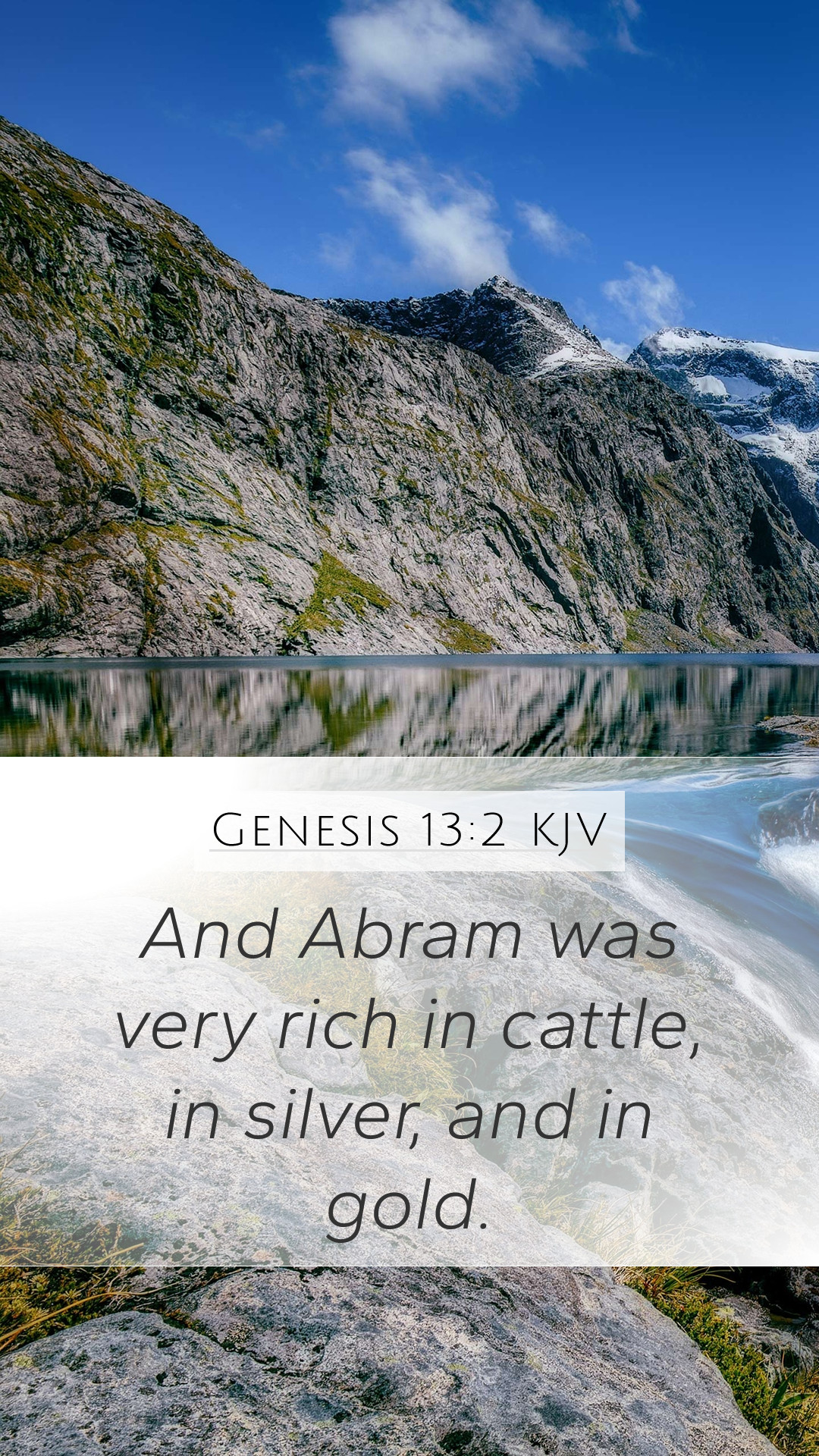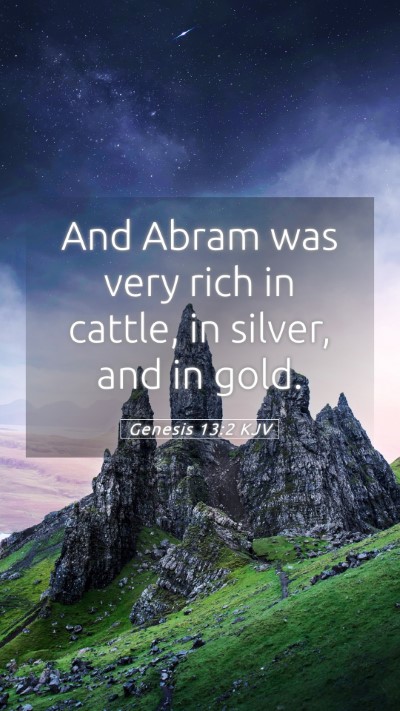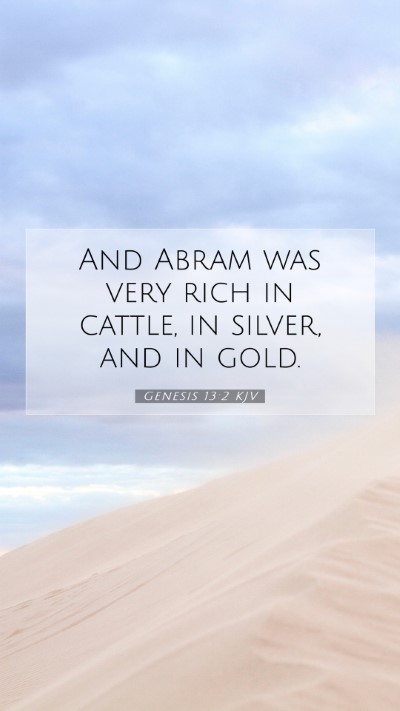Understanding Genesis 13:2
Genesis 13:2 states: "And Abram was very rich in cattle, in silver, and in gold." This verse provides a concise yet significant insight into the character and circumstances of Abram (later named Abraham). To comprehend this verse fully, we will explore biblical exegesis, scriptural analysis, and commentary from esteemed public domain commentaries such as those by Matthew Henry, Albert Barnes, and Adam Clarke.
Bible Verse Meaning
The primary meaning of this scripture centers around the wealth of Abram. In biblical contexts, the measure of a man's wealth often reflected not only material prosperity but also divine favor and blessing. As we delve into the interpretations from various commentaries, we uncover deeper layers of understanding that speak to the socio-cultural dynamics of the ancient world.
Commentary Insights
-
Matthew Henry's Commentary:
Matthew Henry remarks on Abram's wealth as a sign of God's blessing. He emphasizes that riches in the Old Testament were often viewed as a direct correlation to God's favor. This abundance is not merely for personal luxury but serves a larger purpose in God's plan, as it allows Abram to be a blessing to others.
-
Albert Barnes' Notes:
Barnes focuses on the specifics of Abram's wealth, highlighting that his possessions (cattle, silver, gold) were significant assets in that period. He comments on the context of Abram living in a land where such wealth could provide protection and status, illustrating Abram's position in society as both a leader and a man of influence.
-
Adam Clarke's Commentary:
Clarke discusses the implications of Abram's wealth in terms of its role in the narrative of Israel's history. He points out that wealth can serve both good and bad purposes, depending on how it is used. Clarke suggests that understanding this wealth also necessitates considering Abram's character—his generosity and faithfulness to God.
Theological Reflection
Genesis 13:2 invites reflection on the nature of wealth in a believer's life. It poses critical questions about how prosperity should be viewed and utilized in one's walk with God. The implications of being wealthy extend beyond material implications; it raises questions about stewardship, generosity, and reliance on God's provisions.
Wealth as a Test of Character
In the context of biblical exegesis, the verse can be seen as an exploration of how wealth tests an individual's faith and character. Reliable resources argue that wealth can either lead one closer to God or farther away, depending on how it is handled (1 Timothy 6:10). This understanding encourages believers to assess their relationship with material possessions and their role in spiritual life.
Application to Daily Life
When applying Genesis 13:2 to modern living, one might contemplate:
- The responsibility that comes with wealth and how to utilize it for greater good.
- How spiritual blessings often transcend material possessions, reminding us to pursue a relationship with God above all.
- The principle of being blessed to be a blessing, as demonstrated by Abram’s life.
Cross References
This verse interacts with several other scriptures that enhance its understanding:
- Genesis 12:2 - God's promise to make Abram a great nation and bless him.
- Proverbs 10:22 - "The blessing of the Lord, it maketh rich, and he addeth no sorrow with it."
- 1 Timothy 6:17 - Paul’s instruction on how the wealthy should view their riches in the light of faith.
Conclusion
In summary, Genesis 13:2 serves as a profound entry point into understanding wealth as a dimension of divine blessing and responsibility. Through biblical commentaries, we gain insights that encourage thoughtful reflection on the interpretation of wealth, character, and faithfulness. As believers engage with this verse, whether in personal Bible study or group discussions, they access valuable lessons on stewardship, divine provision, and God’s overarching purpose in their lives.


